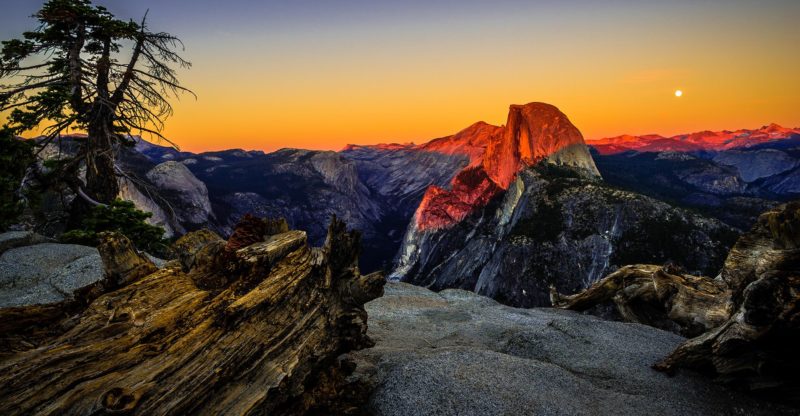Yosemite Mafia: Interview with Former NPS Special Agent
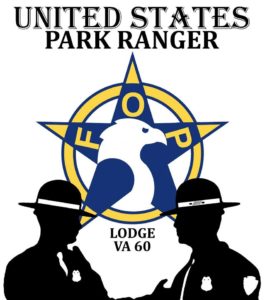
This interview with Paul Berkowitz, a retired NPS Special Agent and author of Legacy of the Yosemite Mafia: The Ranger Image and Noble Cause Corruption in the National Park Service, a TrineDay book, was conducted by the US Park Rangers Lodge of the Fraternal Order of Police
¿¿¿¿¿¿
FOP: Thanks, Paul, for letting us interview you about your new book, Legacy of the Yosemite Mafia: The Ranger Image and Noble Cause Corruption in the National Park Service. And thanks for your support of the Lodge in the past. Many of our longtime members will remember your “Myths and Misinformation” article from our early days, as well as essays like “The Middle of Nowhere Syndrome,” “Big News, But No Surprise,” and “Enough.” What started your interest in writing about law enforcement in the NPS?
PB: The simple answer is that I was seeing things in the NPS that I found troubling; attitudes and behavior that I questioned and wanted to discuss. But the NPS didn’t want to acknowledge those problems, didn’t want to listen, and didn’t want me to be heard. Writing provided me with a way to be heard anyway, and a way to promote a discussion about those issues; particularly issues related to misconduct and corruption in the agency.
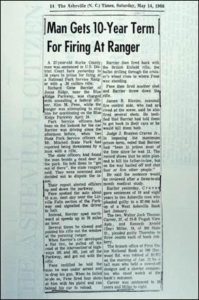
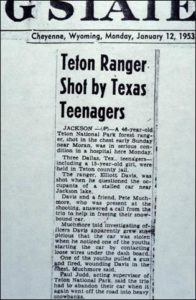 Another motivation was to correct the historical record. Throughout my NPS career, but especially in the early years, I was constantly counseled against getting too interested or involved in law enforcement. Supervisors and others told me that law enforcement didn’t really have a place in the NPS, and wasn’t something that real rangers did or needed to do. But that account conflicted with everything I was seeing in my work as a seasonal at the Grand Canyon, and then at Lake Mead. After a while, I started to wonder how that agency bias against law enforcement and the mythology surrounding the “ranger image” had become so deeply imbedded in the NPS culture. That led to conducting my own research into the actual history of rangers; digging into old files, tracking down old-time rangers for interviews, checking out old newspaper accounts, and looking through historic photographs of rangers. The material I uncovered flatly refuted what I was being told by park managers, and I thought it was important to share what I had discovered.
Another motivation was to correct the historical record. Throughout my NPS career, but especially in the early years, I was constantly counseled against getting too interested or involved in law enforcement. Supervisors and others told me that law enforcement didn’t really have a place in the NPS, and wasn’t something that real rangers did or needed to do. But that account conflicted with everything I was seeing in my work as a seasonal at the Grand Canyon, and then at Lake Mead. After a while, I started to wonder how that agency bias against law enforcement and the mythology surrounding the “ranger image” had become so deeply imbedded in the NPS culture. That led to conducting my own research into the actual history of rangers; digging into old files, tracking down old-time rangers for interviews, checking out old newspaper accounts, and looking through historic photographs of rangers. The material I uncovered flatly refuted what I was being told by park managers, and I thought it was important to share what I had discovered.
FOP: When we posted a link to the book on Facebook, the first comment we received was, “I didn’t see much of that anywhere.” Does that surprise you?
PB: Not really. In the same way that the NPS has been effective in covering up the real record of crime in parks and the historic role of rangers fighting that crime, it has been at least as effective in covering up incidents of serious misconduct within its ranks. Many employees are so indoctrinated into the NPS-way of doing things (i.e. “NPS law enforcement”), that they may not recognize misconduct or “noble cause corruption” when they see it (because “that’s just how we do it here”). Beyond that, there’s a risk for some of the most dedicated and idealistic employees to over-invest in the NPS for their own sense of identity and self-worth. They may be reluctant to acknowledge noble cause corruption when they do see it, because it threatens their own self-image. I’m not trying to dismiss the reader who made that comment. It may be that he or she was fortunate enough to have never really encountered it. But I suspect that after reading the book, and then reflecting on their own experiences and observations, readers like that might come to a different conclusion about what they have actually seen in their own careers.
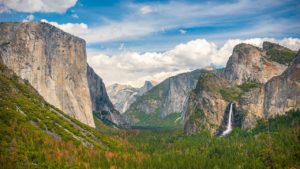
FOP: How do you define “noble cause corruption,” and does this differ with the traditional definition when it comes to law enforcement?
PB: The term originated in criminal justice circles to describe an approach to law enforcement where a desire to “put bad guys in jail” is used as justification for “bending the rules,” and worse, so that legal “technicalities” don’t get in the way of an arrest and prosecution. Obvious examples include acts such as planting evidence, fabricating probable cause, embellishing reports, and concealing exculpatory evidence. But in the book, I explain that noble cause corruption can be found in other professions, where people motivated by a sense of self-righteousness or their own “noble cause” feel equally justified in abandoning professional standards and bending the rules. There are occupations beyond law enforcement that can be – and have at times been – corrupted by a desire to advance a particular agenda or achieve a desired outcome by any means, even if those means include deviating from professional standards or violating their Constitutional oath to uphold and comply with the law.
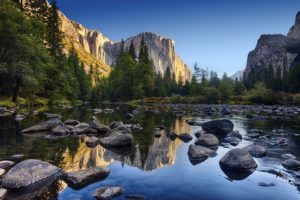
Like law enforcement generally, which I consider one of the most noble and challenging professions there is, the NPS is particularly vulnerable to noble cause corruption, given its idealistic mission and the idealistic employees it tends to attract. Confusion over priorities can become a real problem for employees who may believe that the NPS mission takes precedence over their Constitutional oath and other legal obligations. There was actually a period in the 1990s in the Alaska region when rangers were required to sign an oath document that had literally merged the NPS mission statement together with the mandatory Constitutional oath of office. That kind of pressure is a formula for confusion and the prospects for noble cause corruption.
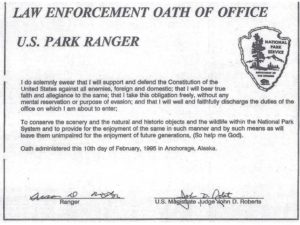
But beyond just the mission, we sometimes see employees who are so wedded to the NPS itself – to the agency and its public image – that they will try to cover-up events and acts that might compromise that image, expose the agency to liability, or simply expose real problems. They mistakenly believe – or will at least argue – that they are actually helping the NPS by keeping quiet and hiding its problems. For them, the noble cause is protection of the Park Service’s public image. That was one of the arguments that my own supervisors in Yosemite used when they tried to keep me from testifying about the illegal bugging that had occurred in the superintendent’s office.
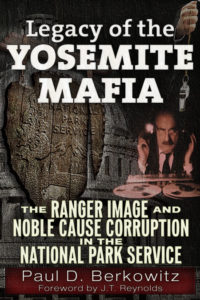 FOP: The book starts off with an extensive history of law enforcement in the National Park Service. Why do you consider this a foundation for understanding the NPS today?
FOP: The book starts off with an extensive history of law enforcement in the National Park Service. Why do you consider this a foundation for understanding the NPS today?
PB: There are several reasons.
Since at least the 1970s, around the time the Yosemite Mafia came together, the NPS has struggled in its approach to law enforcement. At a time when progressive departments in the U.S. were undergoing a real transformation, in the NPS an over-emphasis on “the ranger image” kept the agency from achieving real professionalism. Today, while things are much better for rangers (and for parks) than they were 30-40 years ago, an ambivalent and frequently dismissive approach to law enforcement accounts for most of the weaknesses we still see, including inconsistent funding and staffing levels, an ambiguous chain-of-command, and the inconsistent application of standards for performance and conduct. These problems are the result of deeply rooted cultural issues that have plagued the agency for decades and have yet to be addressed or even acknowledged. If we want to address these problems, we need to understand their historic roots.
There’s a tendency to characterize many of the problems we see in the NPS today, including scandals that have received national attention, as a new phenomenon; the result of only recent changes and failures in leadership. But these problems have existed for decades. If we fail to recognize the historic nature of these problems and their long-standing nature, we may misdirect our focus and succumb to excuses and “remedies” that miss the mark and only make things worse.
Beyond that, I hope that a familiarization with the actual history of law enforcement in the NPS will help to dispel the false image that’s been represented to the public about the actual levels of crime that occur in parks, and the critical role that rangers have long played in combating that crime. We need to challenge that false image and educate the public (as well as our elected and appointed officials) if we are to resist attacks coming from the outside directed at land management law enforcement, and internal efforts to dismantle the real gains we have made in our law enforcement programs.
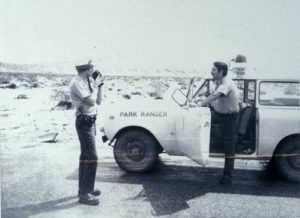
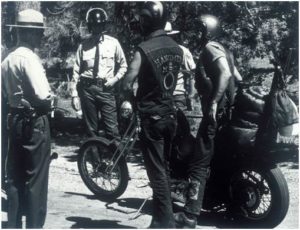
FOP: Any idea what changed between the foundation of the NPS, when managers called rangers the “police force” in the park, and the 1970s and 80s, when law enforcement and “police” became dirty words? What happened?
That’s one of the things that intrigued me and that I tried to resolve in my research. I think a number of factors need to be considered.
At least part of the answer lies in the types of folks who joined the NPS in the early 1970s, as part of a large recruitment effort known as the ranger intake program. I was a seasonal at the Grand Canyon at the time, and not a part of that group. But members of the intake program were cycling through Albright Training Center (co-located at the Grand Canyon). Some were my supervisors, as well. Even then, I was struck by the cavalier attitude exhibited by many of them toward law enforcement. I recall one interpreter supervisor I had who openly laughed about how funny it was that she, as a recent pot-smoking college graduate, had been issued a gun and was now actually a federal law enforcement officer. I distinctly recall interacting with a number of other employees who were part of the ranger intake program, and it seemed to me that none of them took their law enforcement role very seriously. Notably, it was out of this group that the Yosemite Mafia came together.
Some readers are old enough to remember that it was not until the 1960s that serious reforms were directed at, and in many cases imposed upon, American law enforcement. Prior to that, policing in the U.S. was a pretty unsophisticated affair. Few if any educational requirements existed, and most agencies did not even send their officers through a formal academy. Instead, they learned “on the job.” Size and strength were major factors in recruitment and, not surprisingly, brutality was fairly common. It many ways, we had not come all that far from the days of the Old West, and in the East, law enforcement had a reputation more as a knuckle-dragging, billy-club swinging occupation, rather than a profession constrained by constitutional principles. Police and “cops” had a pretty bad image in America, reinforced by the highly publicized police response to events like the 1968 Democratic National Convention in Chicago along with the brutal police response the civil rights protests in the South.
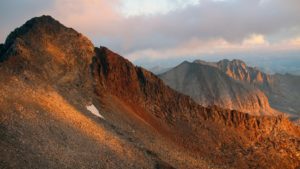
Rejection of that type of behavior and the associated image of law enforcement undoubtedly had an impact on the NPS and the younger group of people recruited into the NPS. But where the reaction across much of the country came in the form of a push for reforms to professionalize law enforcement, the NPS seems to have altogether rejected the idea of rangers as police officers or cops. The agency instead attempted to fabricate its own concept of LE. Acceptance of this approach was made all the easier by a highly romanticized self-image and a decentralized structure that left the agency absolutely clueless about the actual levels of crime that occurs in parks, and the extent to which rangers have historically sacrificed to combat that crime.
Next, recall that prior to passage of the 1976 General Authorities Act (P.L. 94-458), literally all employees in the NPS were vested with law enforcement (arrest) authority. But the Authorities Act rescinded that authority and limited delegation of law enforcement authority to only specially designated employees who were required to meet new training and performance standards imposed on the NPS by the Department of the Interior. That meant that many officials, including superintendents, chief rangers, and others, found themselves stripped of authority. That created real resentment among a sizeable portion of NPS management.
FOP: We’ve come a long way since then. But could it happen again, and what can be done to resist efforts to scale-back our law enforcement program?
Absolutely, and we can see signs of a push-back in some of the legislation coming out of Congress, directed at our sister agencies, and in some of the things being expressed by the new administration. And, of course, much of the NPS leadership still harbors anti-law enforcement sentiments.
NPS management has long used worst-case examples as justification to diminish our LE role, while simultaneously advocating for low hiring standards, minimal training, and little if any real accountability. To resist efforts to further degrade support for NPS law enforcement, we need to push for more rigorous training, more stringent standards for hiring and retention, and increased accountability. We need to demand professionalism. Much of that effort needs to come from organizations like the FOP, which of course, played a key role in achieving the advances in benefits, training, and equipment that have been made for law enforcement rangers since the 1970s. To that end, it will be critical for current members of the ranger force to step up to the plate and assume leadership roles that will enable the U.S. Park Ranger Lodge of the FOP to continue into the future. Otherwise, we risk losing most of what we’ve gained.
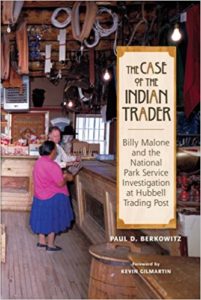
FOP: Your NPS career has been noted by the incidents you’ve described in your books, first the Yosemite whistle-blowing case from this book, and later, dealing with the NPS abuse of law enforcement power in The Case of the Indian Trader: Billy Malone and the National Park Service Investigation at Hubbell Trading Post. In the interim, I’m sure there were hundreds of cases that were less political. When your name comes up, it’s usually from these two events. When you look at your NPS career, what do you think about, the two cases, the many others, or a combination?
PB: What strikes me most is how many other people have seen the same types of things or had similar experiences, but felt they were powerless to do anything about it or were just resigned to the situation, because that’s just how things work in the NPS. I know I’m not the only one who’s encountered these types of problems or has seen these types of abuses. When I sit down with friends to reminisce, the conversation is filled with accounts of similar incidents. Many of the readers I hear from can’t wait to share their own outrageous and frustrating experiences dealing with dishonest or abusive supervisors; absolutely crazy incidents and behavior that was never properly addressed. The extent to which this type of thing seems to occur in the NPS, but does not get addressed, underscores the importance of speaking out and sharing these accounts and attempting to educate employees about how often this sort of thing is actually occurring, and how damaging it really is to the NPS. Employees need to know how to react when they encounter serious misconduct or corruption in the workplace. Employees need to understand that they are not alone, and that are ways to confront this type of behavior without compromising their own sense of integrity and, hopefully, without ruining their own careers.
FOP: Finally, at the Lodge’s request, you’ve talked with others who have blown the whistle on NPS wrongdoing. What advice do you have for those who will run into similar wrongdoing in the future?
Let me share an answer I gave when I was asked a similar question a few years ago.
First and foremost, don’t compromise yourself or your position by going along with what you know is wrong. Know the law and know the policies of the organization in which you work. Don’t give anyone any ammunition to come after you, because they most certainly will come after you with everything they’ve got. Be uncompromisingly honest, even if it means not being a “team player.” If you were at some point complicit in wrong-doing, admit it, up front. Don’t compromise your credibility by lying or withholding information. Next, document, document, document. Keep meticulous records, and store duplicate copies of those records in a safe place. Seek out a trusted ally for support and advice. If you’re lucky, that may be someone with whom you work, but be extremely cautious in assessing where that person’s loyalties lie. Remember that the staff of your human resources or personnel office and even your agency’s legal department is there to support the position of management and not necessarily you, no matter how “right” you are.
Regrettably, even the OIG has on occasion abandoned whistle-blowers out of political expedience. Federal protections for whistle-blowers are weak to non-existent. Don’t be deluded into romantic notions about whistle-blowing, thinking that doing the right thing by reporting misconduct will necessarily win you any friends, favors, or even gratitude. “Blowing the whistle” or even reporting misconduct through channels is not an easy or pleasant thing to do. But it is almost always the right thing do, and it is frequently a legal or policy requirement of the agency or organization in which you work. Conversely, failing to report serious misconduct can almost always be used against you. That prospect is worth considering in deciding whether or not to step forward to report something wrong. Organizations like the U.S. Park Ranger Lodge of the F.O.P, Public Employees for Environmental Responsibility (PEER), and other watch-dog and whistle-blower advocacy groups can be an excellent source of confidential support and advice on how to expose serious misconduct. Unfortunately, they weren’t around back in the early 1980s when I had my first whistleblower experience in Yosemite. But had they been, and had I taken advantage of them, I’m sure it would have been a much less stressful process, likely with a much more gratifying outcome.
FOP: Thanks, Paul. Best of luck with the book, and thanks for your support of the Lodge over the years.
Legacy of the Yosemite Mafia: The Ranger Image and Noble Cause Corruption in the National Park Service and Paul’s previous book, The Case of the Indian Trader: Billy Malone and the National Park Service Investigation at Hubbell Trading Post are available on Amazon.com and many other online outlets.





